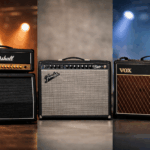How do I decide what guitar I should buy?
Whether you’re an experienced musician or just starting to learn, choosing the right guitar is a crucial decision and we are very often left with the question “What guitar should I buy?” With so many different types and models of guitars available, it can be overwhelming to decide which one is right for you. However, with the right information and guidance, you can make an informed decision and find a guitar that will help you achieve your musical goals. In this blog, we’ll share 10 tips to help you choose the perfect guitar for your style, whether you’re a blues guitarist, a rock player, or a fingerstyle aficionado. By the end of this article, you’ll have a better understanding of what to look for when buying a guitar and feel confident in your decision-making process.
1. Determine Your Playing Style.
The first step to finding the perfect guitar is to determine your playing style. Are you interested in playing rock, blues, jazz, or classical music? Each genre requires a specific type of guitar that produces the desired sound. For example, a classical guitar has nylon strings that produce a warm, mellow sound, while an electric guitar produces a more aggressive, distorted tone.
2. Consider Your Skill Level.
Your skill level is another critical factor to consider when buying a guitar. If you’re a beginner, you might want to start with an acoustic guitar, which is easier to play than an electric guitar. Acoustic guitars have thicker strings and a wider neck, which makes it easier to hold down the strings and produce clear notes. On the other hand, if you’re an advanced player, an electric guitar might be a better fit as it offers more versatility and allows you to experiment with different effects and sounds.
3. Set a Budget.
Guitars come in various price ranges, from a few hundred dollars to several thousand dollars. It’s essential to set a budget before starting your search for the perfect guitar. A high-end guitar might offer superior sound quality and durability, but it might not be necessary for a beginner or an intermediate player. On the other hand, a cheap guitar might not produce the desired sound and might break down quickly.
4. Play Different Guitars.
It’s crucial to play different guitars before making a purchase. Visiting a music store and trying out different guitars can give you a better idea of what type of guitar fits your style and skill level. Don’t be afraid to ask for help from a salesperson or a guitar teacher, as they can provide valuable insight into the different types of guitars available.
Find a music shop/guitar store near you, they will always let you have a go with different guitars and try before you buy! Even though there are fewer and fewer guitar shops about, you’ll still find multiple in every city, and there will never be one too far away from the town you live!
5. Consider the Body Type.
The body type of a guitar plays a crucial role in the sound it produces. Guitars come in three main body types: solid-body, hollowbody, and semi-hollowbody. A solid-body guitar is made from a single piece of wood and is commonly used in rock music. A hollowbody guitar has a hollow chamber that produces a warm, acoustic sound and is commonly used in jazz and blues music. A semi-hollow body guitar is a combination of both solid and hollow-body guitars and offers a more versatile sound.
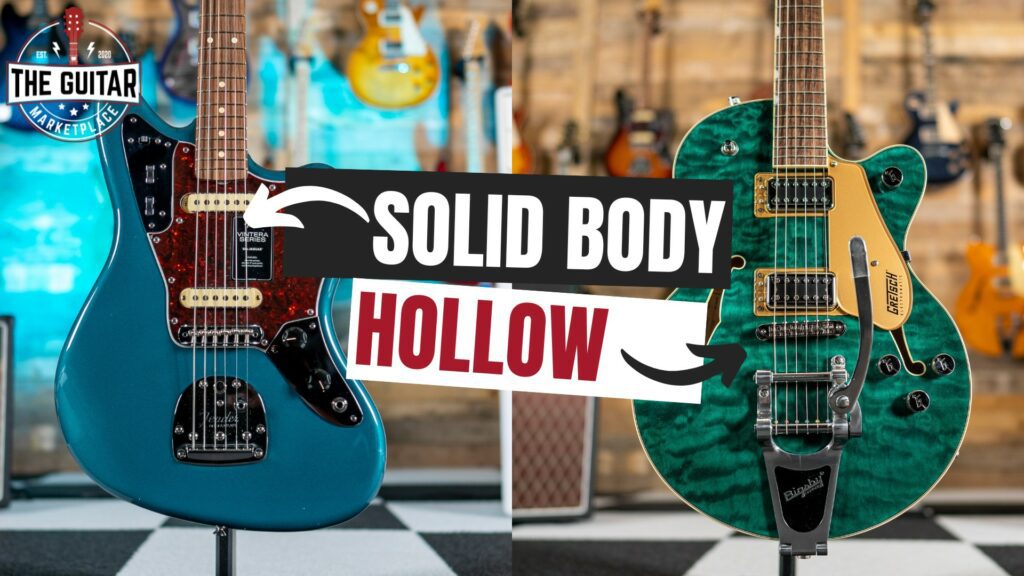
With all this being said, it should be kept in mind that there is no set menu and the amazing thing about music is that limits can be pushed, opinions can be different and you can create something amazing with whatever you have!
7. Check the Fretboard Material.
The material used for the fretboard can also affect the sound and playability of the guitar. Guitars come with different fretboard materials, including rosewood, maple, and ebony. Rosewood is a common material used for fretboards and produces a warm, mellow sound. Maple is a harder material and produces a brighter, snappier sound. Ebony is a dense material that produces a bright, clear sound and is commonly used in high-end guitars.

8. Consider the Pickup Type
The pickup type is a critical factor to consider when buying an electric guitar. Pickups are magnetic devices that pick up the sound of the guitar’s strings and convert them into an electrical signal. Electric guitars come with different pickup types, including single-coil, humbucker, and P90 pickups. Single-coil pickups produce a bright, twangy sound and are commonly used in country and rock music. Humbucker pickups produce a thicker, more distorted sound and are commonly used in heavy metal and hard rock music. P90 pickups are a combination of both single-coil and humbucker pickups and offer a versatile sound.
9. Check the Hardware Quality.
The hardware quality of a guitar can also affect the instrument’s sound and durability. The hardware includes the tuning pegs, bridge, and nut. It’s essential to check the quality of the hardware before making a purchase, as low-quality hardware can affect the guitar’s tuning stability and overall sound quality.
[Learn more about how to improve your guitar tone on guitar.com]
10. Read Reviews and Ask for Recommendations.
Finally, it’s always a good idea to read reviews and ask for recommendations before buying a guitar. Online reviews and forums can provide valuable insight into the different types of guitars available and their sound quality. You can also ask for recommendations from other guitar players or your guitar teacher, as they can provide firsthand experience and insight into the different types of guitars available.
When thinking about what guitar I should buy, this is the most important step! Look at reviews from different YouTubers, guitarists etc. and then go try them out!
So What Next?
In conclusion, finding the perfect guitar requires careful consideration of your playing style, skill level, budget, and personal preferences. Deciding “what guitar should I buy” is a personal and important decision that can greatly impact your musical journey.
By following the 10 tips outlined in this blog, you can make an informed decision and find a guitar that is the perfect fit for your playing style. Remember to consider factors such as body shape, tonewoods, and pickups, and to prioritize the features that matter most to you. With the right guitar in hand, you can unleash your creativity and take your playing to the next level. So, take your time, do your research, and find the guitar that inspires you to create music that moves and excites you.
Check Our Competitions to See What Guitars You Could Win for a Fraction of the Price.
-
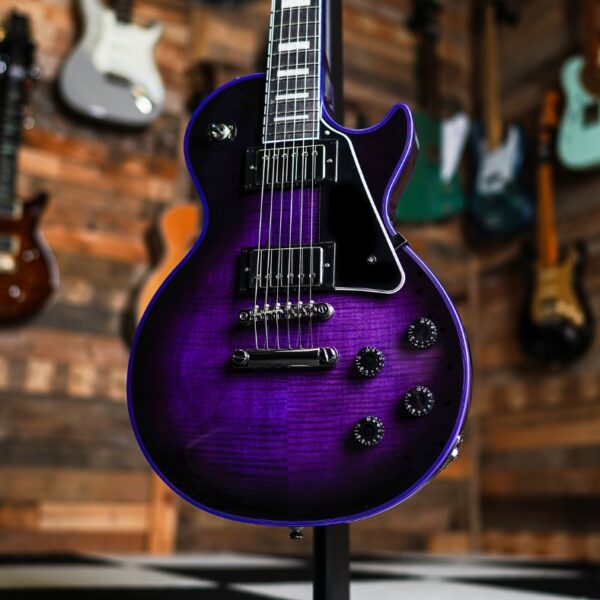 Epiphone Les Paul Custom Widow in Purple Burst£0.99Per Entry
Epiphone Les Paul Custom Widow in Purple Burst£0.99Per Entry -
 Boost Your Odds – Win Tickets Instantly!£1.99Per Entry
Boost Your Odds – Win Tickets Instantly!£1.99Per Entry -
 £30,000 Instant Win – 1/3 Odds£1.99Per Entry
£30,000 Instant Win – 1/3 Odds£1.99Per Entry -
Product on sale
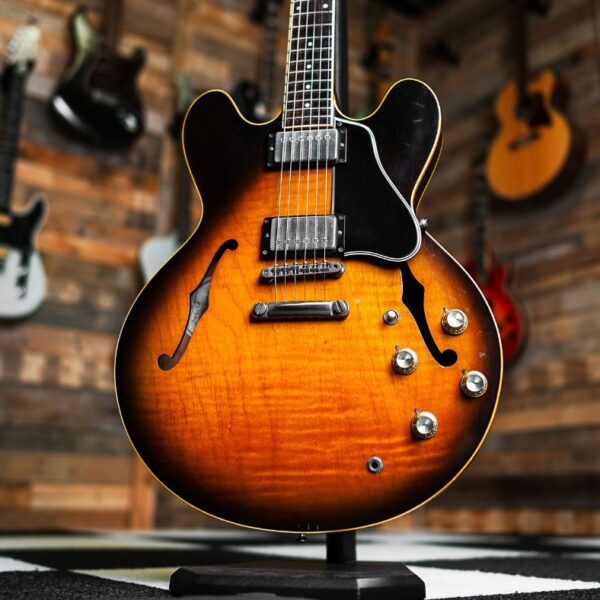 1992 Gibson ES-335 Dot in Vintage Sunburst – Yamano Import!Original price was: £2.99.£2.50Current price is: £2.50.Per Entry
1992 Gibson ES-335 Dot in Vintage Sunburst – Yamano Import!Original price was: £2.99.£2.50Current price is: £2.50.Per Entry -
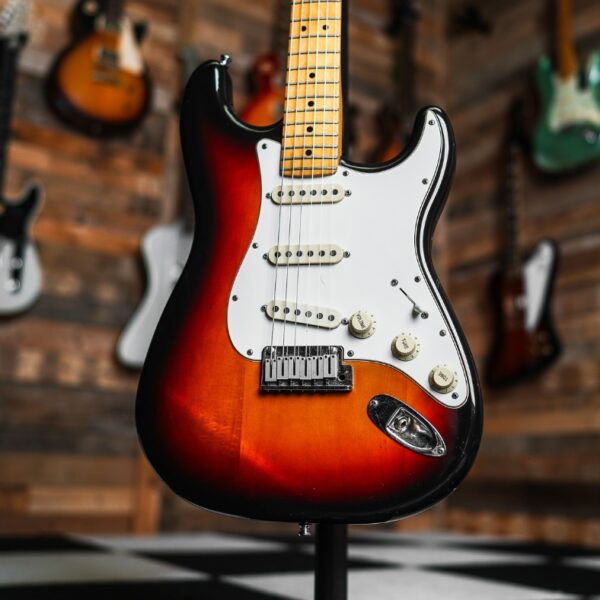 1987 Fender American Standard Stratocaster in 3-Tone Sunburst – B-Stock Bargain!£0.17Per Entry
1987 Fender American Standard Stratocaster in 3-Tone Sunburst – B-Stock Bargain!£0.17Per Entry -
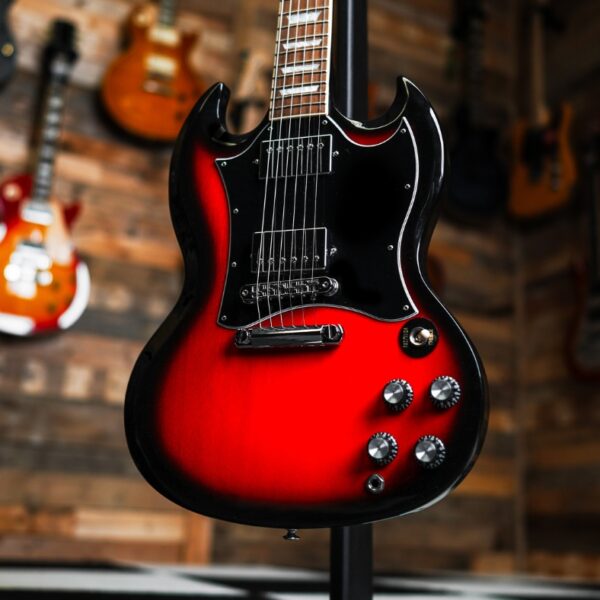 Gibson SG Standard Custom Colour in Cardinal Red Burst£0.30Per Entry
Gibson SG Standard Custom Colour in Cardinal Red Burst£0.30Per Entry -
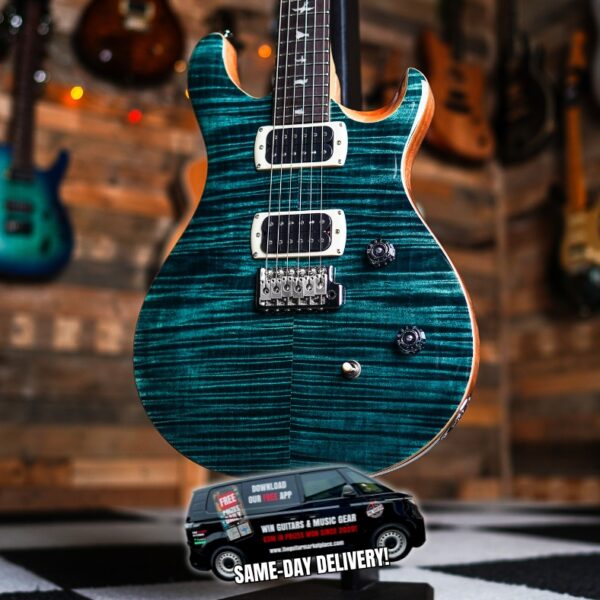 PRS SE CE24 in Slate Blue – Same-Day Delivery in The TGM Bus!£2.99Per Entry
PRS SE CE24 in Slate Blue – Same-Day Delivery in The TGM Bus!£2.99Per Entry -
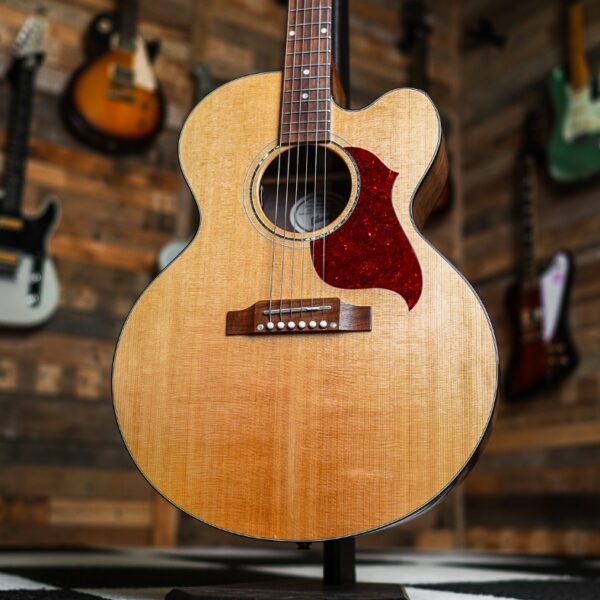 Gibson J-185 EC Modern Walnut in Antique Natural£2.99Per Entry
Gibson J-185 EC Modern Walnut in Antique Natural£2.99Per Entry -
 Fender Player Stratocaster in Tidepool£0.99Per Entry
Fender Player Stratocaster in Tidepool£0.99Per Entry



